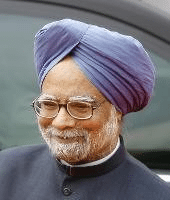 Mayank Bubna | 13 Apr 2009
Mayank Bubna | 13 Apr 2009
WORLD POLITICS REVIEW
NEW DELHI, India — One of India’s biggest ever defense deals with Israel, worth $2 billion, hovered on the brink of collapse earlier this month after allegations of graft to the tune of $120 million surfaced. Indian Defense Minister A. K. Anthony was quick to deny the claims, while asserting that the government would take strict action against the Israeli company and the Indian middlemen involved should the charges be true. This was, however, the second blow to Indo-Israeli relations in a matter of days — the first being a controversial video produced by Israeli defense firm Rafael and shown at a recent arms expo that lampooned India’s Bollywood movie industry.
The bad news came at a time when ties between the two countries could not have been stronger. In March, Israel officially overtook Russia to acquire the enviable position of India’s largest arms supplier. Now the deal involving the sale of surface-to-air missiles by Israel Aerospace Industries to the Indian government seems to have been jeopardized.
India-Israel strategic relations have traditionally been defined around security. Prior to the 1990s, India regarded with skepticism military ties to a state founded around its religious identity. Struggling to deal with the growing menace of Islamic fundamentalism and terrorism, though, and impressed with Israel’s successes in wars against neighboring Arab nations, India has cultivated closer ties since then.
The shift was also aided by weakening Indo-Russian relations, frayed in the immediate aftermath of the breakup of the former Soviet Union. Several problems have arisen in Indo-Russian bilateral defense cooperation since 1991, including but not limited to issues of spare parts provision, technical documentation and what one analyst called “scant respect for contractual obligations” — a reference to Russian delivery delays, property rights disputes and avoidable cost escalations.
But if Israel has emerged as a partner of convenience in India’s efforts to diversify its arms procurement, the relationship has also presented potential problems. According to P. R. Kumaraswamy, a professor at Jawaharlal Nehru University in New Delhi, restructuring India’s defense capabilities to facilitate purchases from Irael might be detrimental in the long run. “Israel does not export platforms, rather it only offers high-tech innovation upgrades,” he says, referring to Israel’s limited arms inventory. Technology is not as tangible as military hardware. Furthermore, India is incapable of a “complete military overhaul,” which according to Kumaraswamy would become necessary if India shifted completely from one major supplier to another.
Another critical factor is the political costs of courting Israel. Domestically, politicians fear the loss of the Indian Muslim vote. Problems in Kashmir may be very different from and seemingly unrelated to the Palestine issue. But in an age of increasing globalization, many in India have strong sympathies for the Palestinian cause.
Internationally, however, India stands to lose less. According to Kumaraswamy, it is “unfashionable” to speak of the Israeli factor as affecting Indo-Arab strategic ties. Arab apprehensions, if any, have usually been discussed only in private circles. Historically, Arab nations have grudgingly accepted Indo-Israel strategic relations, even as thousands of Indians continue to live and work in several Middle Eastern nations.
Iran, too, has pursued an India policy independent of Israel. According to Kumaraswamy, Iran can afford to do this because there are “certain things that Iran can supply which Israel cannot, like energy security.” Israel’s strength lies in security cooperation, an area of collaboration where Iran has little to offer India.
Yet, growing India-Israel cooperation could now be in peril, thanks to public outrage over the recent corruption allegations. While defense procurement fraud is hardly news to the Indian public, this most recent incident stands out for its dimensions. The largest previous scandal involved the sale of Swedish howitzers in the 1980s, in which several Indian ministers were alleged to have received about $12 million in kickbacks. The current Israel deal involves corruption charges amounting to 10 times this amount.
Traditionally India has somehow brushed off these humiliations, managing to treat corruption as inevitable and therefore tolerated within the Indian political system. Whether this same sense of fatalism can help it endure this most recent crisis remains to be seen.
Mayank Bubna is a freelance war correspondent and consultant. He is presently based in India.
Source: www.worldpoliticsreview.com, 13 Apr 2009





